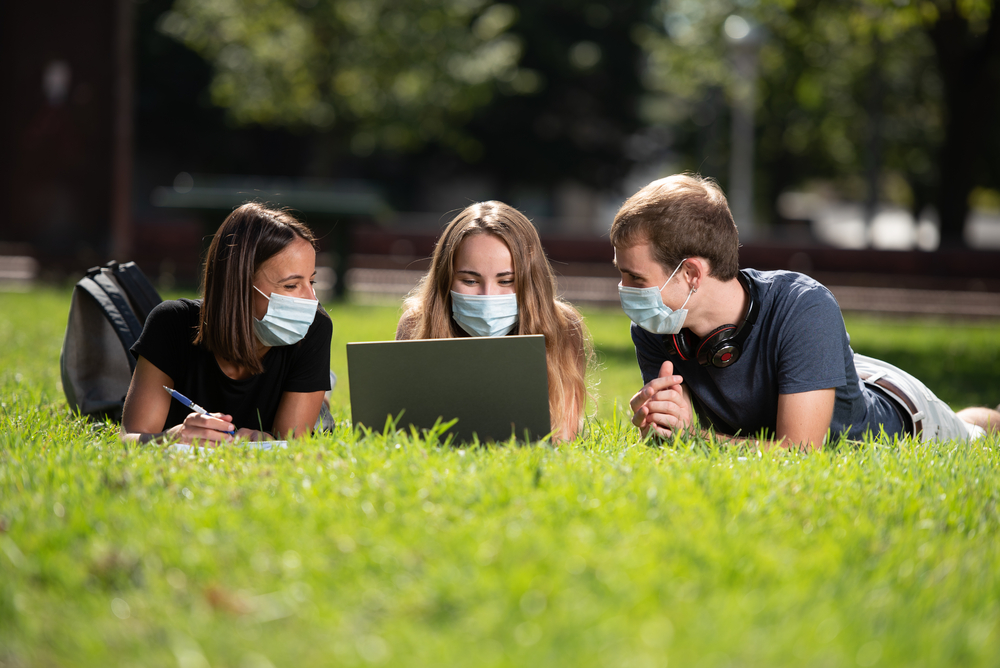
Back to Campus, Now What?
Congratulations! You have made it through the pandemic and now you are back on campus to finally feel like a student again.
The past year and a half have been challenging for many college students. When the pandemic hit, students – and faculty members – lost touch with the resources that universities usually provide for them. Gone were the days of group study sessions at the library, lively seminars and events on campus.
Now that you are back, what can you do to re-adjust to college life?
We all have a need to belong. According to a study by Dr. Hilda Mulrooney and Dr. Alison Kelly from Kingston University, college campuses instill a sense of belonging in students by providing a safe environment for them. The researchers suggest that ”universities have multiple functions. They are primarily places of education and scholarship, teaching and research, but they are also important community hubs.”
The pandemic, unfortunately, severed students’ connection to physical spaces within college campuses and therefore to each other in the past year. Therefore, reconnecting with the university environment might be a little stressful in the beginning. However, there are ways to foster a sense of belonging and safety again.
Know your limits
In-person life might feel overwhelming and stressful. As you re-adjust to life on campus, it is completely normal to feel like a beginner again.
Psychologist and award-winning author Dr. Doreen Dodgen-Magee highlights the fact that we have not been practicing in-person communication skills since the pandemic started in her article, “In-Person Life Is Exhausting: Post-Pandemic Socializing.” We have been living life through e-mails, texts and video calls for more than a year!
To make the transition back to in-person life easier on our mental health, Dr. Dodgen-Magee recommends prioritizing self-care over social gatherings. Although you might be tempted, you do not have to force yourself to be more social than you have the mental and emotional capacity for.
Practice fierce self-compassion
Did you know that students who are more compassionate towards themselves participate more in class and are more likely to foster a sense of belonging?
A study by Dr. Phoebe Long and Dr. Kristen Neff from the University of Texas, Austin reveals that students who are highly self-compassionate are more likely to ask questions in class, seek help and speak with their instructors outside of class. Long and Neff suggest that practicing self-compassion helps students regulate their emotions when it comes to performance anxiety and fear of evaluation.
Think of self-compassion as treating yourself as you would a close friend. However, according to Dr. Kristen Neff, “sometimes we need to stand tall and say no, draw boundaries, or fight injustice.” Fierce self-compassion is about actively standing up for ourselves in a kind but firm manner when we need to.
As you transition back to college, just remember that you have been through a lot and it is totally okay if it takes a little bit of time for you to get back to in-person life.
Stay curious, compassionate and kind.
REFERENCES
- 1. Mulrooney, H.M. & Kelly, A.F. (2020). The university campus and a sense of belonging: What do students think? New Directions in the Teaching of Physical Sciences, 15. DOI:10.29311/ndtps.v0i15.3590
- 2. In-person-life-is-exhausting-post-pandemic-socializing
- 3. Long, P., & Neff, K. D. (2018). Self-compassion is associated with reduced self- presentation concerns and increased student communication behavior. Learning and Individual Differences, 67, 223-231. https://doi.org/10.1016/j.lindif.2018.09.003
